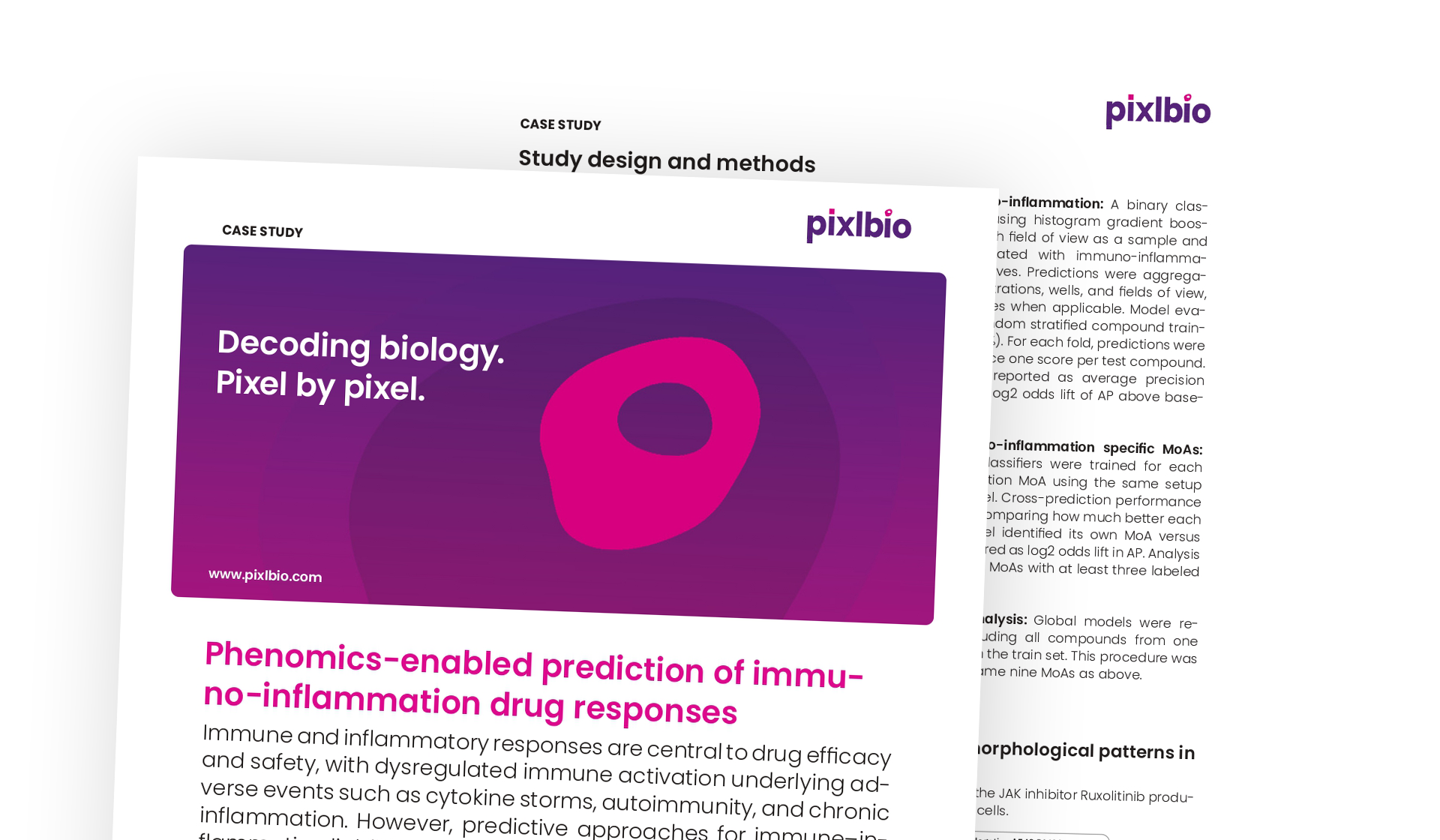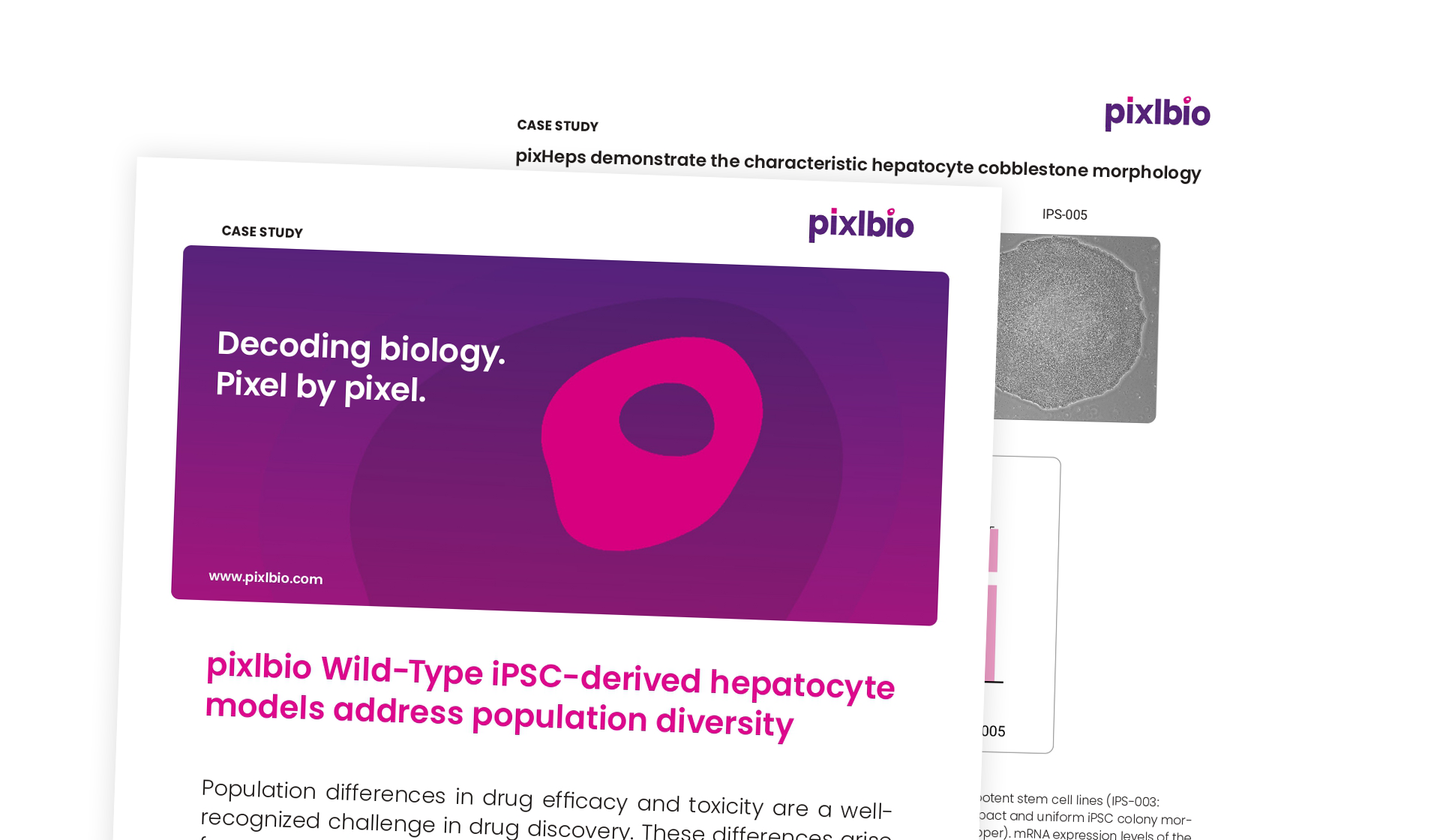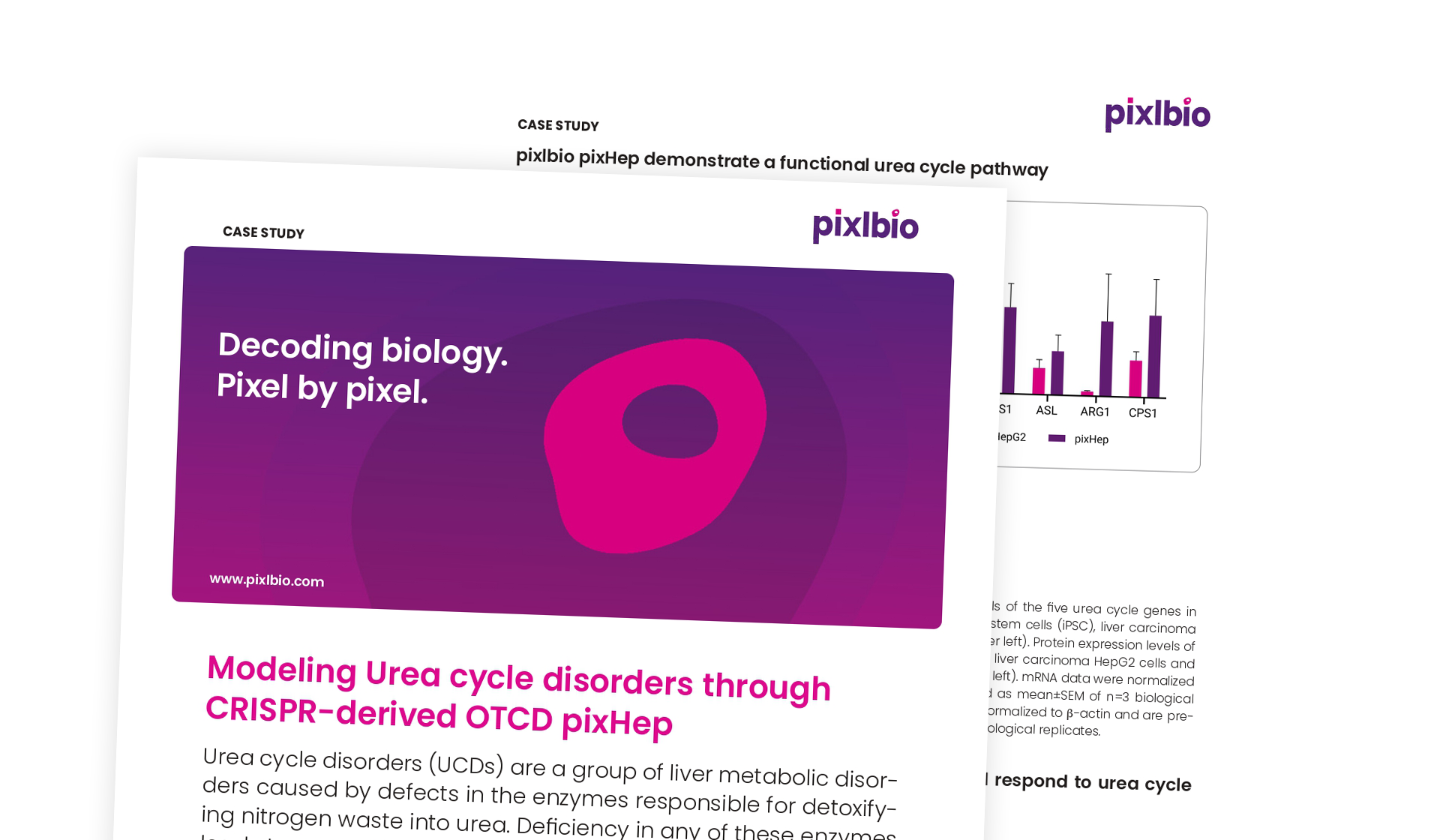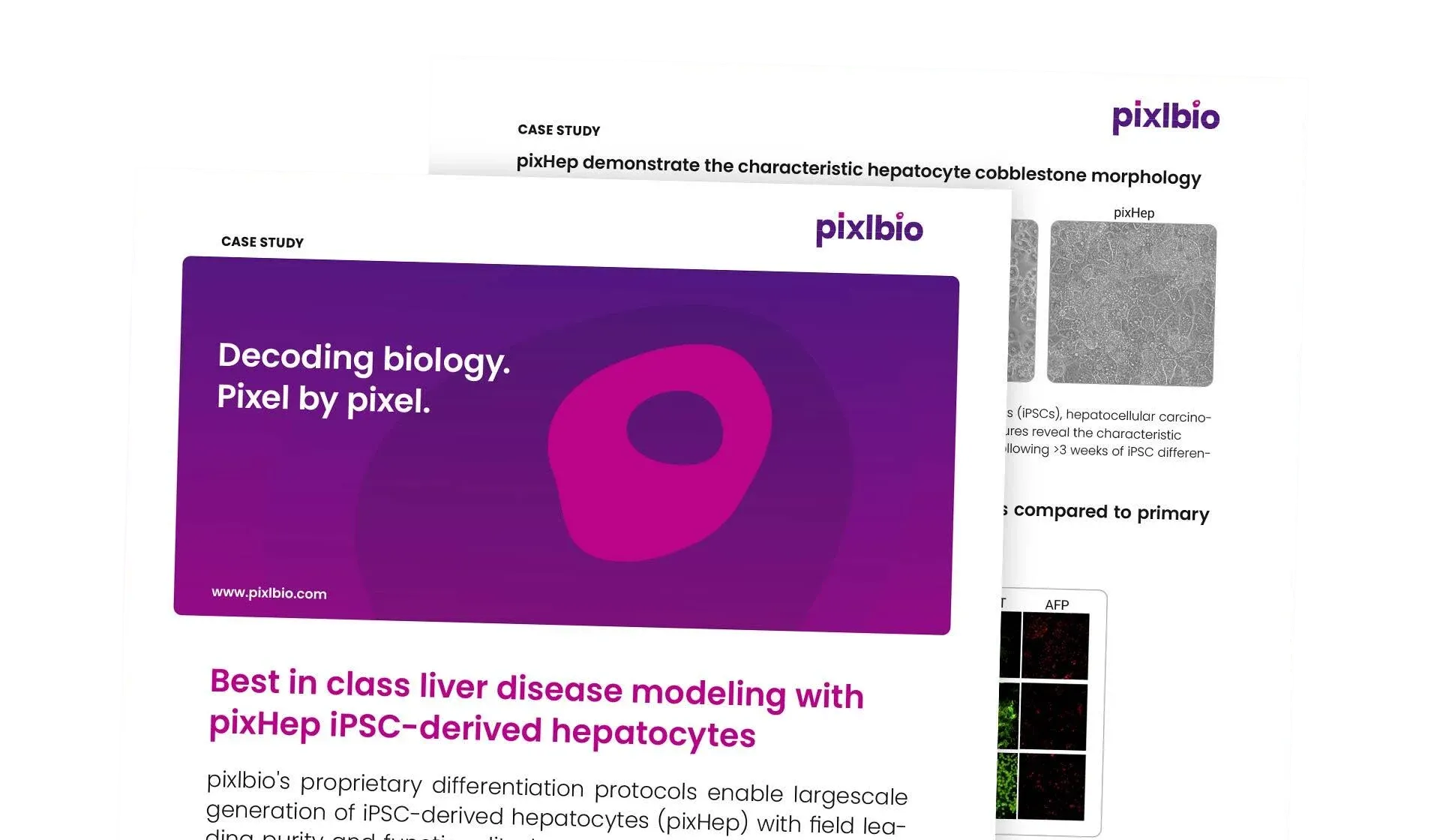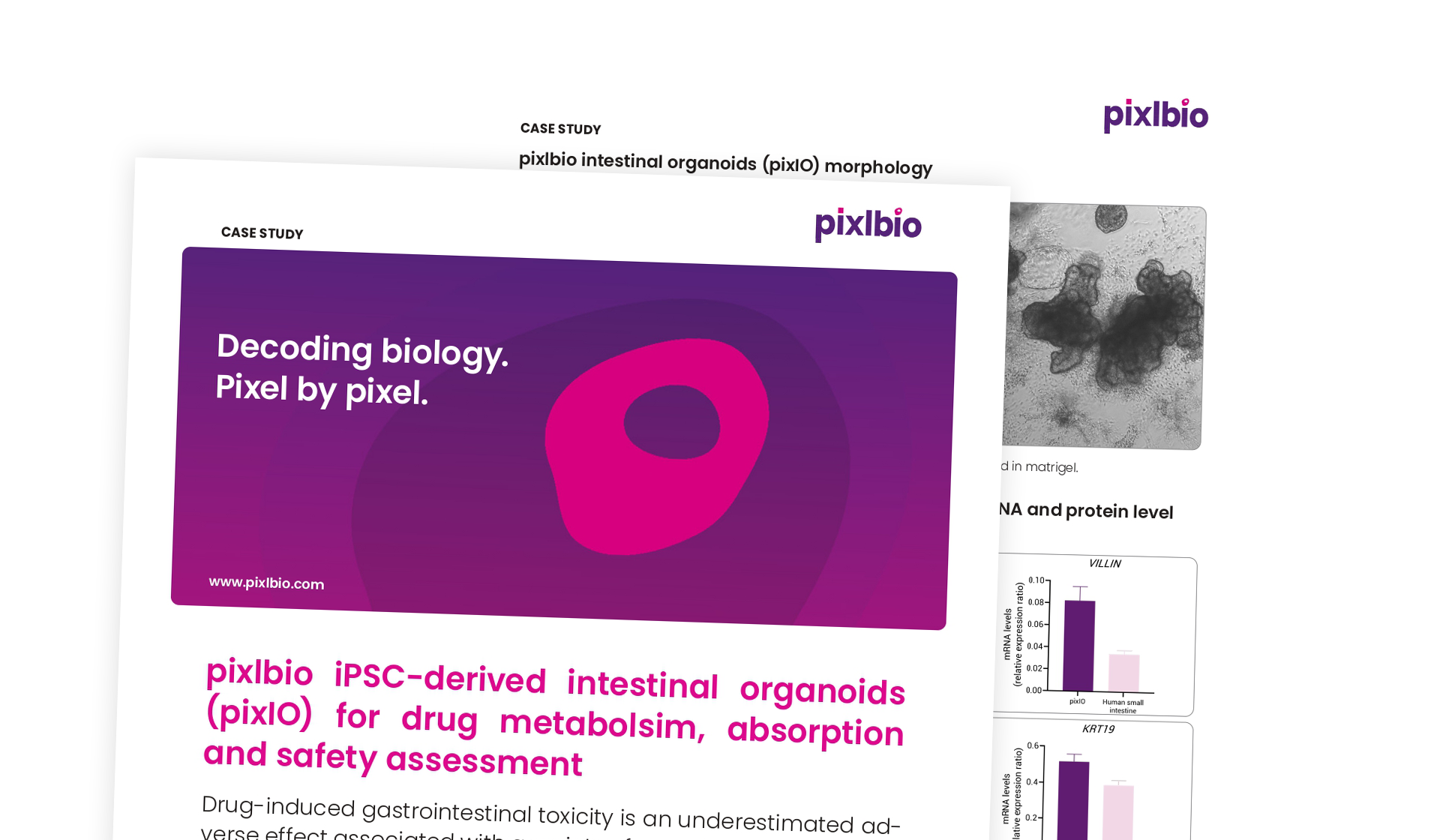Modeling progressive familial intrahepatic cholestasis type 2 through CRISPR-derived PFIC2 pixHep
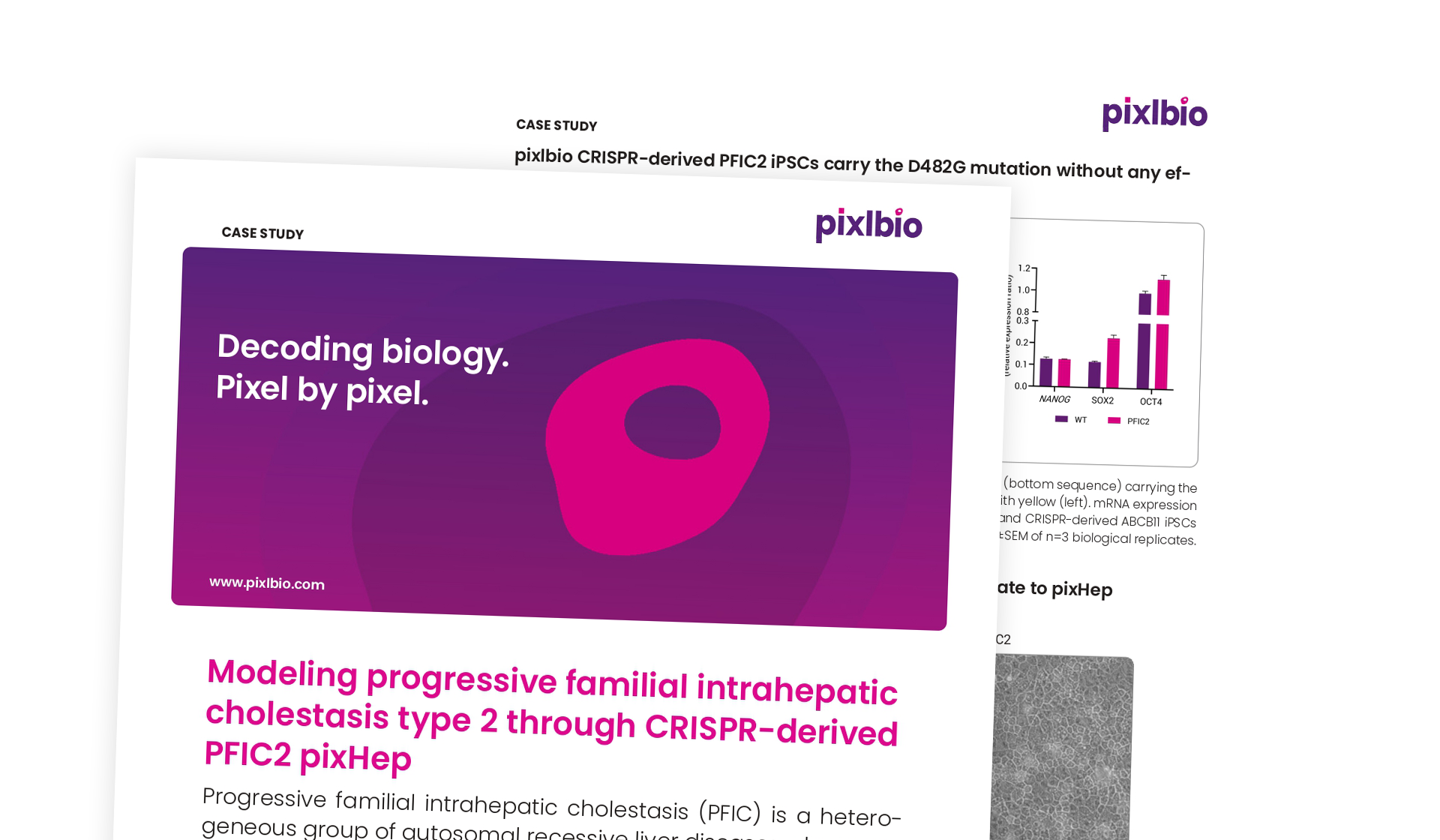

Progressive familial intrahepatic cholestasis (PFIC) is a heterogeneous group of autosomal recessive liver diseases, characterized by mutations in genes involved in hepatocellular bile acid secretion. Amongst these, PFIC2, caused by mutations in the ABCB11 gene, represents half of all PFIC cases. Patients typically present with symptoms such as liver failure, cirrhosis, and hepatocellular carcinoma. Despite the importance of the disease, there are currently no licensed treatments, mainly due to the lack of appropriate pre-clinical models in drug discovery. At pixlbio we have developed a novel iPSC-derived hepatocyte system that recapitulates the human PFIC2 phenotype in-a-dish, offering, for the first time, an effective pre-clinical PFIC2 disease model for hit-lead drug screening studies.


